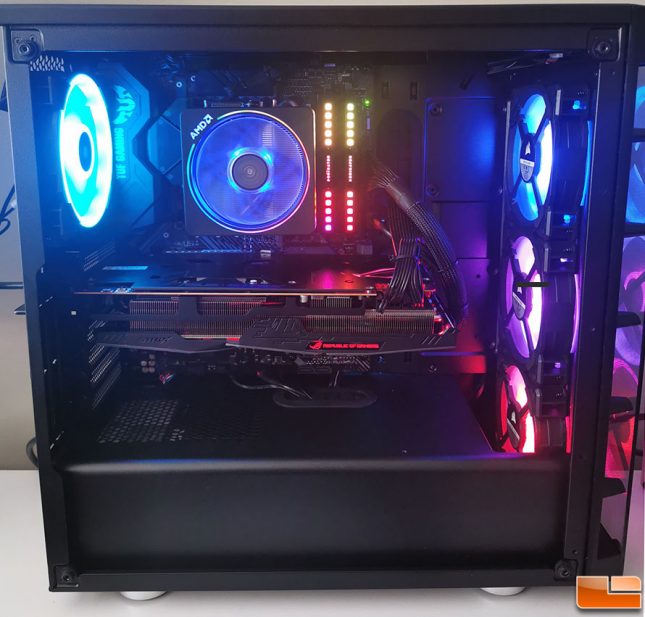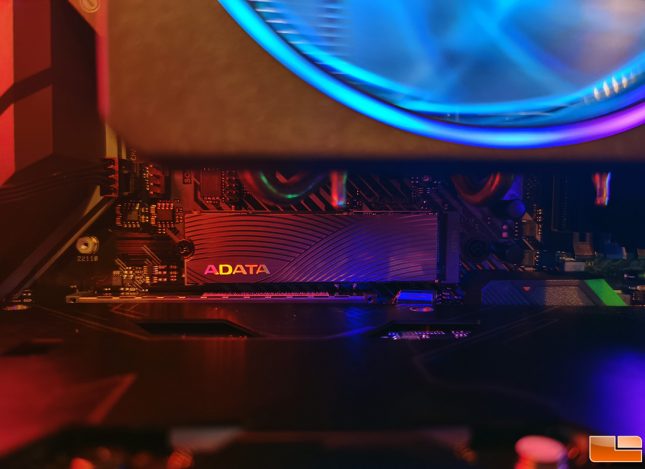ADATA Swordfish 1TB NVMe SSD Review
SSD Temperature
When it comes to SSD temperature testing we figured out that this is a really tricky thing to measure and that is why most review sites don’t show temperature results. At first we were going to use the minimum and maximum temperatures reported by S.M.A.R.T. and call it a day. That looked good, but while looking closer at the data we noticed that some of the drives with the highest peak value actually averaged out to be much cooler over our entire test suite that takes over three hours per pass to complete. For example, the Intel Optane 905P 960GB drive has the second lowest maximum temperature of all the drives that we have tested, but it also happens to be tied as having the highest average temperature. Seeing high temperatures on a drive might persuade someone not to buy that particular model, so the average temperature result seems to be very important result to include.
All temperature testing was done in a Corsair iCUE 465X RGB case ($129.99 shipped) with an extra Corsair LL Series LL120 RGB fan added to the back of the case to help as an exhaust fan. We then set the fan speed in the UEFI of the ASUS TUF Gaming X570-Plus (Wi-Fi) to run at 50% fan speed.
The drive being tested was then screwed down in the primary M.2 slot that is located between the CPU socket and the primary PCIe 4.0 x16 slot that holds the AMD Radeon RX 5600 XT 6GB graphics card. The tempered glass side panel was then placed back on the case before our test suite was run. Ambient room temperature at the time of testing was 21C or right around 70F.
Using the S.M.A.R.T. temperature sensor we found the ADATA Swordfish 1TB VNMe drive had a minimum temperature 0f 39C, an average temperature of 43C and a maximum temperature of 62C inside our test system with the tempered glass panel on.
There was no thermal throttling experienced during testing and there should be no heat concerns in a properly cooled system.
Let’s wrap up this review!


